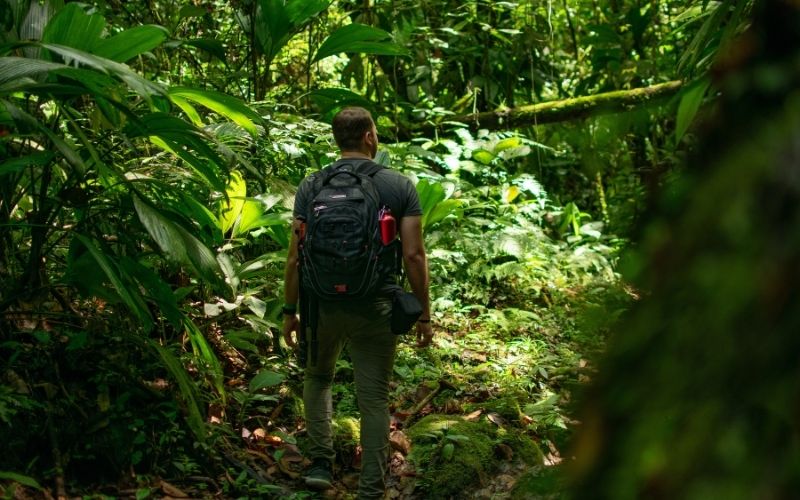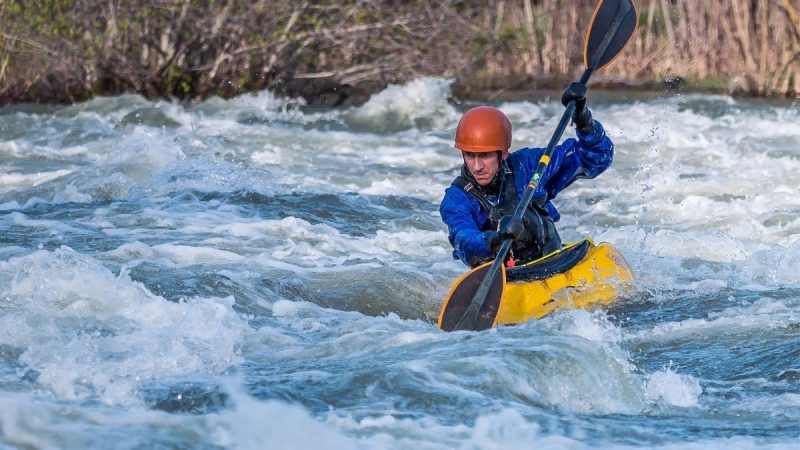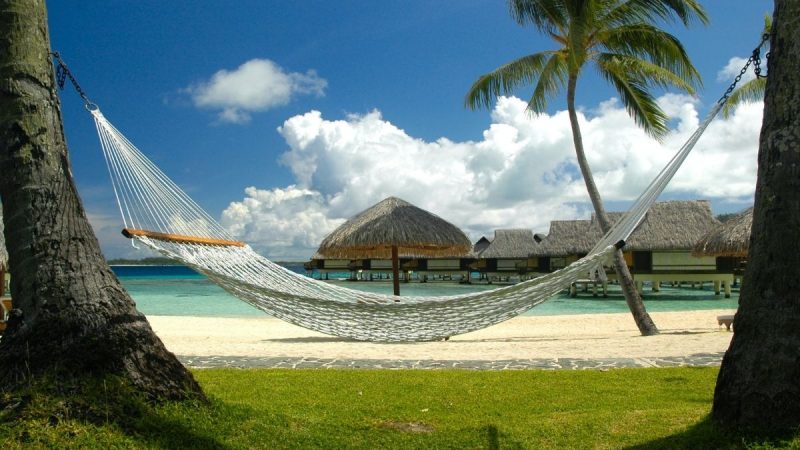Important Principles of Ecotourism – Travel with Mind Power

Principles of ecotourism is a widely used spoken topic that is used in several literary works. The following article consists of the different ideas and concepts linked to this subject as well as their meaning and purpose which can assist those individuals seeking additional information on this matter.
An individual committed to tourism can, by following principles of ecotourism achieve maximum benefits. The principle of ecotourism is an agreement that defines guidelines necessary for ecotourism. It limits tourism activities to the minimum impact on the environment and the local community to ensure sustained economic, social, cultural, and physical values.

What is Ecotourism?
In other words, popular as sustainable tourism, ecotourism can be defined by a variety of travel practices, but it all comes down to a general set of ideas. As an ecotourist, you decide to travel in a way that shows respect to nature and does not contribute to its degradation.
Additionally, ecotourism is a part of environmental conservation and understanding what the needs of the people are for them to continue living with their environment. It can also be popular as ‘eco-awareness’. This subject educates individuals about issues surrounding the environment in which they live.
Early Definition
The term ecotourism was first coined by the biologist Paul Cullen from Australia in 1978 which was later popularised by Bran van Vliet from Holland when he was a member of the World Tourism Organisation.
However, it is important to note that even before Paul Cullen and Bran van Vliet’s involvement with the term, ecotourism was already practiced by indigenous peoples who understood how to balance their activities with nature for centuries. This way of life has been passed on through generations and this approach is known as subsistence tourism or community-based tourism.
Subsistence Tourism
This form of ecotourism is based on concepts such as:
- Minimum impact: Most forms of subsistence tourism involve low profit and low profit enterprises which generate few environmental impacts. Subsistence travel aims at recycling local income and minimising financial outflows from that area; if there would be ways, then the community will not participate.
- Fair Trade: Tourism businesses that contribute to local communities must provide a fair trade to their host communities. In essence, an equitable relationship involving the exchange of skills and resources between travel businesses and the community it is trading with should be developed. The aim of this is to reduce poverty levels in developing world regions as well as to distribute benefits from tourism more evenly across society.
- Local leadership: Tourism development projects which involve locals can only work if locals have a meaningful participation in the whole project – from initial planning stages through to final product delivery. If people are not in throughout, they won’t feel responsible or committed towards achieving results as effectively as possible.
How Is Ecotourism Different From Traditional Tourism?

With traditional tourism, the main focus is different. The main aim is to attract visitors and then provide them with entertainment, catering facilities that are easily accessible as well as leisure facilities resulting in the total satisfaction of individuals’ needs. This form of tourism attracts people by using advertisements that show picturesque places and scenes (e.g., beaches).
However, ecotourism focuses on creating sustainable relationships between tourist businesses and local cultures as well as environmental conservation through partnership. Its objectives involve increasing awareness of the world around you while promoting cultural exposure for those involved, often underlined by deep respect towards nature intended to create a positive impact for all those who come into contact with ecotourism initiatives.
Principles of Ecotourism
Ecotourism is a part of the ecology movement in the tourism industry – a step toward sustainable development in tourism, which can be defined by a variety of travel practices, but it all comes down to a general set of ideas. As an ecotourist, you decide to travel in a way that shows respect to nature and does not contribute to its degradation.
Ecotourism Adapts the Following Principles
- Minimizing the negative impacts on the environment.
- Building environmental and cultural awareness.
- Providing financial benefits for conservation.
- Generating direct financial benefits for local communities.
- Delivering memorable experiences that help raise sensitivity to host countries’ political, economic, social climates.
- Designing, constructing, and operating low-impact facilities.
- Minimizing the negative impacts on the environment: “the objective of ecotourism is to minimize negative impacts and conserve natural and cultural resources through education and participation.” (Bunce 1999)
- Building environmental and cultural awareness: Ecotourists strive to educate themselves about local cultures as well as the natural environment.
More Examples of Principles of Ecotourism
- Responsible use of natural resources: To prevent further depletion or destruction of these assets by increasing awareness to conserve and protect these resources.
- Respect for local cultures: To recognize the importance of local cultures by recognizing and celebrating them throughout your visit without negatively influencing their unique traditions and ways of life.
- Economic opportunities: To create well-paying jobs and provide training so locals can take advantage of business opportunities that will benefit both themselves as well as the environment.
- Environmental protection: By helping to restore habitats, build fences around wildlife sanctuaries, buy land to prevent deforestation, help reduce pollution through recycling initiatives as well as educate yourself on the negative impact our lifestyles have had on this planet.
Ecotourism Helps Local Communities While Protecting the Environment at the Same Time.
The Importance of Practicing or Following Principles of Ecotourism

Many people are aware of how important it is to ensure that tourism benefits both the tourist and the local community. The goal of ecotourism is to reduce harmful impacts on communities. This must also while simultaneously improve economic opportunities through sustainable development in these regions.
There are plenty of reasons why this industry has become so popular. It is popular mostly among tourists, governments, and international conservation organizations all over the world. This is mostly because it has proven successful in conserving habitats, saving endangered species. Moreover, it has been restoring wildlife habitats, generating employment for locals, creating new business opportunities for disadvantaged groups as well as providing alternatives for rural economies which are extremely dependent on tourism.
What Can You Achieve by Following Principles of Ecotourism?
- Increased knowledge about both the natural environment and the native cultures.
- The ability to leave a destination with greater understanding, giving you an opportunity to share your experiences back home when traveling with family and friends.
- More insight into the way in which other people live their lives, helping you see things in a different light.
- A strengthened sense of respect toward both nature and cultural diversity – leading to you practicing more sustainable living at home. How Does Traveling Relate to Principles of Ecotourism?
- By planning your trip around ecotourism initiatives, making sure that the places you visit get more visitors throughout the year. This is also together with incentives for locals to be in, it is a great starting point.
- By choosing an eco-friendly destination, you also get the opportunity to support sustainable development. This is possible in areas where this is less accessible.
- When traveling, many people are usually too busy with their daily routines. This make them forget how privileged we are. Especially when it comes to the amount of choice we have when planning our trips. Whether you prefer an adventure or relaxing on a beach, there’s sure to be something suitable for everyone!
What Could Happen if We Do Not Practice Principles of Ecotourism?
The most obvious consequence would be further depletion/destruction of natural resources through environmental degradation and the destruction of key habitats. However, this may result in entire communities losing their homes. This is because farmlands arise by destructing forests which leads to loss of biodiversity.

How Can You Book a Sustainable Vacation?
When traveling, make sure you choose an eco-friendly destination. There are now more resources available. Available resources are to enable travelers to research destinations and tours before they book them or visit a certain area. This is through helping them determine which providers commit to sustainable development.
While there, help support conservation initiatives. This is possible by purchasing items from local retailers who are in projects, as well as making donations where applicable.
Furthermore, encourage local communities to adopt sustainable practices through money being put into education programs about recycling and waste management. This will help ensure that animals and the environment continue thriving for generations to come!
Conclusion
To conclude, traveling with principles of ecotourism in mind can be great for your personal growth. Moreover, it will help to save the planet. Read this article on how to take part in volunteer tourism.






